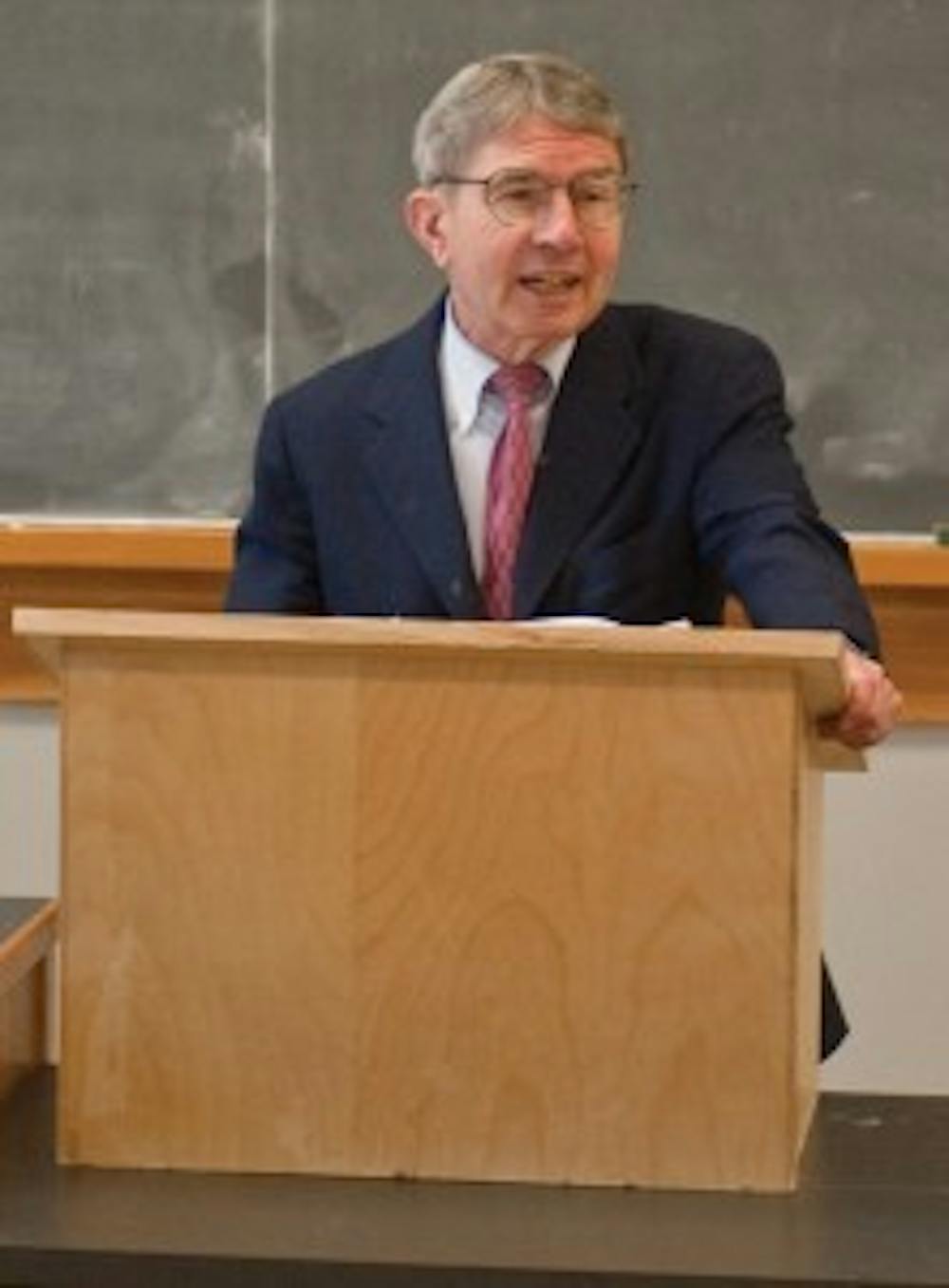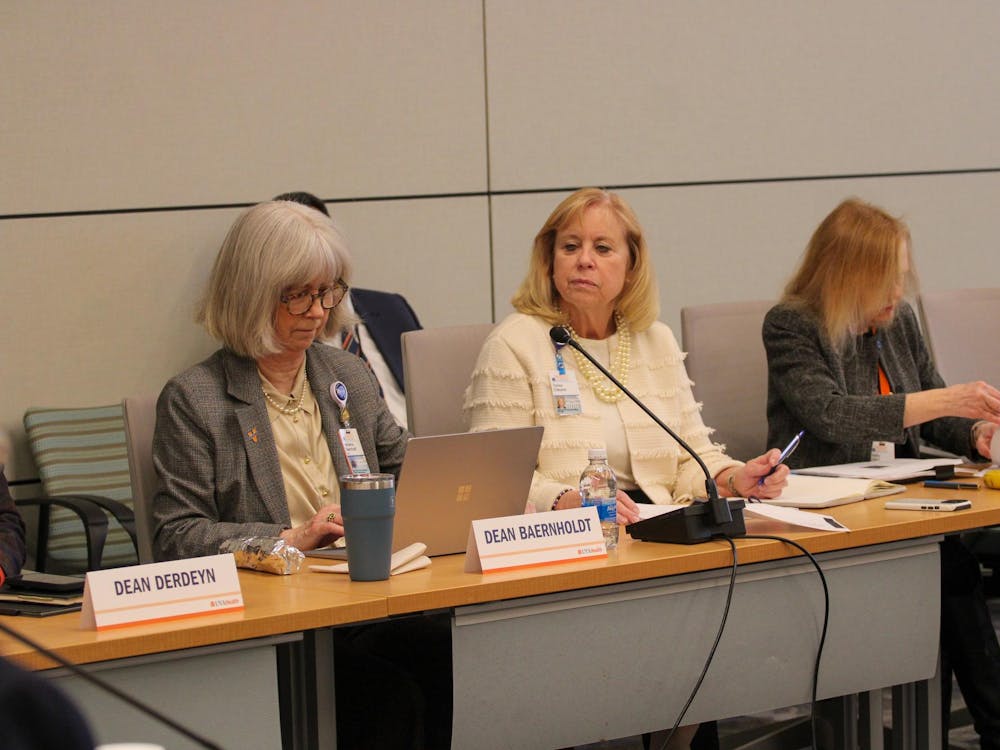Federal Trade Commissioner J. Thomas Rosch addressed Economics Prof. Kenneth Elzinga's antitrust seminar class yesterday to discuss the responsibilities of the FTC and the impact of the group on U.S. policy.
The FTC, made up of five members appointed by the president and confirmed by the Senate for six-year terms, works to protect both competition and consumers nationwide, Rosch said.
"We challenge single-firm conduct we consider to be unfair," Rosch said. "We also have a consumer protection mission."
President George W. Bush appointed Rosch in 2006. Previously, Rosch had worked for more than 40 years as an antitrust attorney. He is one of two Republicans on the FTC. "It's supposed to be a bipartisan agency," Rosch said. "[But that's] not always the case."
Rosch praised his fellow commissioners. "I like them very much without exception, personally," Rosch said. "Politically, we disagree."
Elzinga, a longtime friend of Rosch's, said the commissioner has "basically done it all" in antitrust policy. "[Rosch] is known as a great gentleman and one of the real friends of antitrust," Elzinga said.
Rosch met Elzinga when they worked on cases together in the private sector, including Lifschultz v. Consolidated Freightways. The case, which the 4th U.S. Court of Appeals decided on July 6, 1993, investigated alleged anticompetitive practices among trucking companies.
"The Lifschultz case was a case in which the various large trucking companies were accused of conspiring [to push] Lifschultz [another trucking company] out of business," Rosch said. He and Elzinga worked together to defend the companies sued in the case.
Rosch said the FTC should be an enforcement agency, not a regulatory agency.
"We should not put the cart before the horse," Rosch said. "We should not issue decrees that would make competition better or consumers better off ... Only in the case of a punitive violation of the law is the Commission empowered to act in the public interest."
Rosch said at times the FTC is confronted with political issues such as the implementation of Accountable Care Organizations (ACOs), groups of doctors and hospitals permitted to work together to provide care under the Affordable Care Act.
"Supporters of that legislation originally claimed that ... ACOs would save billions of dollars and result in better-quality care," Rosch said. "However, I considered ACOs to be nothing more than clinical integration ... I wondered, in other words, whether or not we had done the right thing in relaxing antitrust guidelines for ACOs."
Rosch's term ends this September.







